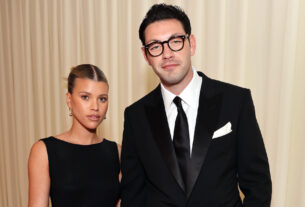In 1971, legendary British actress Judi Dench played Portia in a production of Shakespeare’s “The Merchant of Venice.” In her book about the playwright published this spring, Dench is candid and straight to the point about the play, which centers on a Jewish moneylender: “I think it’s a horrible play.”
Dench, who would usually joyfully skip to the theater, added that she found herself dreading each performance. “All the characters behave so badly,” she wrote. “Nobody really redeems themselves.”
Written more than 400 years ago, the portrayal of Jews in “The Merchant of Venice” — namely, the infamous, vindictive Jewish moneylender, Shylock, who demands a literal pound of flesh from the Christian merchant, Antonio — was called “profoundly anti-Semitic” by preeminent literary critic Harold Bloom. The play was even a favorite of Nazi Germany, where, between 1933 and 1939, it was performed 50 times.
And yet, it continues to be performed around the world — including here in New York with a new, off-Broadway production of “The Merchant of Venice” that will open at Classic Stage Company (136 E 13th St.) on Friday, Nov. 22.
Given the climate of rising antisemitism since Oct. 7, 2023 — hate crimes targeting Jews in New York City have surged over the past year, according to NYPD data — staging the play in present-day New York City seems like an unusual choice, at least at first glance. But according to director Igor Golyak, his version of “Merchant” — a play Shakespeare wrote as a comedy — challenges Jewish stereotypes by doubling down on them.
“The purpose of this comedy is to have the audience understand how easy it is to fall into hate,” Golyak told the New York Jewish Week following a rehearsal of the play last week.
Golyak’s “Merchant” offers a meta, comedic and, at times, cartoonish take on the original story. Billed as a “contemporary, spirited” production, it’s set in the present-day, in a nightclub/late-night talk-show setting with a camera pointed at the cast. Antonio (played by “Grey’s Anatomy” star T.R. Knight) welcomes the audience in a humorous fashion: “Tonight, we give you Shakespeare in a new time, a modern time,” he says. “So gone are the fancy tights, and gone are the boys playing women — we have actual real women!”
“It’s a hard play,” Knight admitted, echoing Dench.
“[The play] is filled with so much vile, racist ugliness,” he said, adding that “a straight version of ‘Merchant of Venice’” would “border on the impossible” to pull off.
However, as executive producer Sara Stackhouse points out, “We’re doing this version of ‘Merchant of Venice’ in the context of Oct. 7, and what happened in Amsterdam, and the election and a real rise in hatred and antisemitism around the world.” (Israeli soccer fans were attacked after a game in the Dutch capital earlier this month.)
According to Golyak, Shakespeare intended “The Merchant of Venice” to be a straightforward comedy in which good defeats evil. The problem? In the play, “evil” is presented as a loathsome Jew — a detail that was likely far more palatable in 1590s England, which had expelled its Jews 300 years earlier, than to present-day audiences.
Golyak, who is Jewish and originally from Kyiv, Ukraine, leans into — and by the play’s conclusion, undercuts — the original script’s clear-cut, good-versus-evil plot by exaggerating its use of tropes. For example, as he contemplates loaning money out to Bassanio (José Espinosa) in Antonio’s name, Shylock the villainous Jew (Richard Topol) dons Groucho glasses and a vampire’s teeth and cape, while the Christian heroes at one point slip into Batman masks to defeat him.
Support the New York Jewish Week
Our nonprofit newsroom depends on readers like you. Make a donation now to support independent Jewish journalism in New York.
“Batman, Superman, you know they’re the quote-unquote righteous ones,” Golyak said. “Of course, I’m being ironic, but that was the initial intention of the play.”
Golyak added that, centuries ago, the actor playing Shylock would don a red wig to echo traditional portrayals of Judas with red hair. And Shylock’s monologues — like the iconic, “Hath not a Jew eyes?” — which are nowadays typically portrayed in an emotional, human light, were once fodder for the audience’s laughter.
“He was this comic villain,” Golyak said. “So we are going with that until the play turns on itself.”

Richard Topol (left) plays Shylock, who dons Groucho glasses and a vampire cape as he considers a loan to Bassanio, played by José Espinosa (right). (Joseph Strauss)
Over the years, directors have altered the script of “Merchant” to confront its offensive aspects for contemporary audiences. An adaptation that ran last year at the New Ohio Theatre, for example, reimagined the play by focusing on the idea of white supremacy. The previous year, a “Merchant” production in Brooklyn tackled anti-Black racism.
Golyak’s take, however, acknowledges not just the hatred within the play, but also the ease with which audiences can become complicit in that hatred. Nearly every scene has comedic elements, like Antonio’s frazzled, bumbling introduction, or the game show played by suitors/contestants to win over Portia, which lull the audience into a state of enjoyment. “Everyone is having fun, everyone is laughing together,” said Golyak, “and then we fall into supporting the hate.”
“This play is a comedy, and it’s a blast — until it’s devastating,” Stackhouse concurred.
Golyak and much of the cast recently worked on “Our Class,” a dark play about the 1941 Jedwabne pogrom, that was performed at BAM in January. For his next work, he wanted to try something lighter — and thus he landed on “The Merchant of Venice.” “I wanted to come at the same theme of antisemitism from the opposite angle, but ultimately arriving at the same depth,” he said.
Broadway veteran Topol said playing Shylock is “a little bit scary for [him] to do” as a Jew. But the role has long been on the bucket list for Topol, who played Tubal alongside Al Pacino’s Shylock in the 2010 production of “The Merchant of Venice” at Shakespeare in the Park. “I’m stealing as much Al Pacino as I can,” he said.
Shylock’s journey of losing his daughter — who marries a Christian — and losing the money loaned to Antonio leads to a twist ending hinted at by Golyak and cast members that forces the audience to reflect on their own laughter throughout the show. Like in the original, Shylock succumbs to the Christians, but “how we express it is different,” Golyak said.
Alexandra Silber, who stars as Portia, is no stranger to the theme of antisemitism — she’s played a number of “harrowing Jews” in her career, including Rachelka in “Our Class” and both Hodel and Tzeitel in “Fiddler on the Roof” (twice each). And while she expressed concern over rising antisemitism — pointing to last week’s neo-Nazi demonstration outside a community theater production of “The Diary of Anne Frank” in Michigan — Silber also acknowledged the role that humor can play in combating it.
“Jews are better than anybody in the world at laughter,” she said. “I think the shoulder shrug, the joyous dancing, the religious ecstasy and the cultural community that laughs together, is why we’ve been able to bear it all.”
Jewish stories matter, and so does your support.




